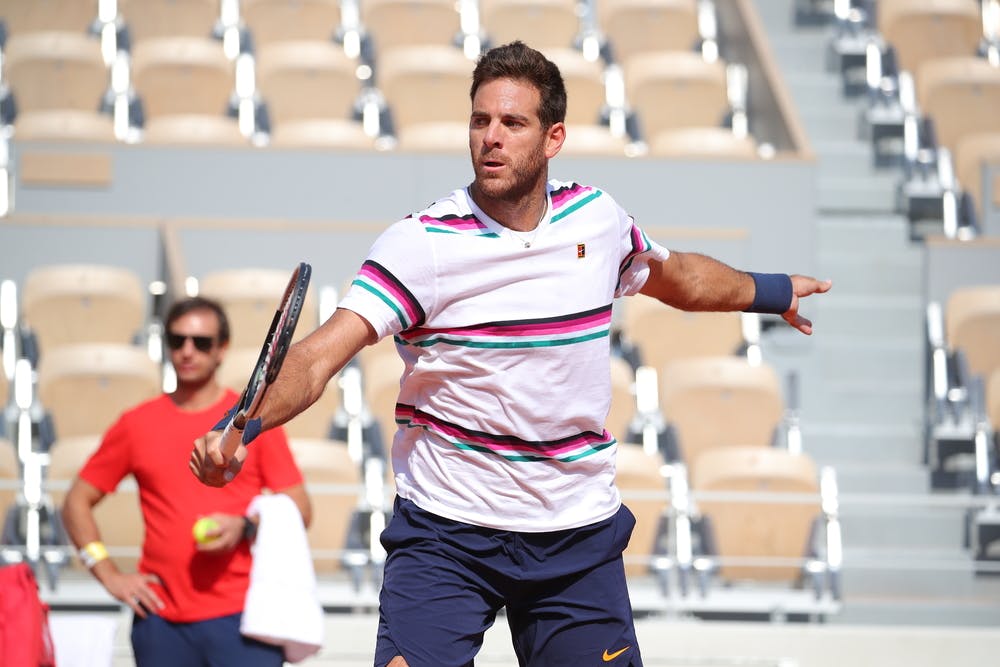As has become the norm in a career spanning 14 years, however, misfortune was never far away.
A fractured kneecap in Shanghai ruled him out for the rest of 2018 and this year’s Australian Open.
After four months out, this was a setback that planted another seed of doubt.
Maybe this was the blow to finally bring down the curtain on his career.
“Yes, yes, because when you’ve got an injury, everything comes down and you feel really bad after the rehabilitation time,” Del Potro said. “The only thing that all the players want to be is just playing tennis. I wasn't available to do that.”
But one thing coming back from four prior wrist surgeries had taught Del Potro was how to respond to the inevitable mental toll of going through it all again.
“Emotionally, I've found some similarities to what I experienced a couple of years ago,” Del Potro said upon his return to the tour at Delray Beach in February.
“As soon as I injured myself, emotionally it was very frustrating because I was fighting at a very high level for important things.
“In those moments, where you maybe are not so positive, or where you are not so strong, of course I started to remember the memories of the past and I started feeling what I might have felt a couple of years ago.”
Rising in Rome
His latest comeback would take longer than expected and he arrived in Rome last week with a light-on 2-2 match record for the season.
It was nothing to indicate the sudden change in fortunes to come on the red clay.
Having seen off former world No.7 David Goffin and Casper Ruud back-to-back, Del Potro found his best form since last year’s US Open to hold two match points against world No.1 Novak Djokovic, in the pair’s 20th showdown.
Hailed as the match with the purest, most unrelenting ball-striking seen this season so far, Del Potro fell narrowly short, succumbing in a three-set classic.
Mission to defend
Now the focus returns to Roland-Garros, where the Argentine last year matched his best result with a run to the semi-finals.
Djokovic, for one, knows never to be surprised any more at what his good friend can achieve in spite of adversity, especially on the biggest stages.
“It's unfortunate that he struggled throughout his career with injuries. But he's always, in my eyes, one of the best players in the world,” Djokovic said.
“If he's on, he's mentally strong, he's got weapons. He's been in the situations where you play against the biggest rival in the biggest tournaments in sport, the biggest stadiums in sport. He's not overwhelmed by the occasion.”
One high-quality shoot-out in the Italian capital is a small sample size when it comes to judging form, yet the Argentine is fast closing on a return to his best.
Moving about Chatrier in his black, dual pink and turquoise striped white training ensemble on Tuesday, all appeared on track for the Argentine to give himself the best possible crack.
“I was really sad trying to fix the knee problem,” he said.
“It took a little bit longer than the doctor says. But now I'm having the chance to play another tournament… I know how long is the way of comeback, but I'm ready to try once again.”
 ROLAND-GARROS
19 May - 8 June 2025
ROLAND-GARROS
19 May - 8 June 2025


 © Cedric Lecocq / FFT
© Cedric Lecocq / FFT